Related Research Articles
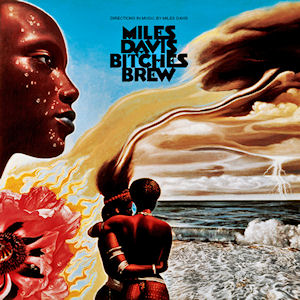
Bitches Brew is a studio album by American jazz trumpeter, composer, and bandleader Miles Davis. It was recorded from August 19 to 21, 1969, at Columbia's Studio B in New York City and released on March 30, 1970, by Columbia Records. It marked his continuing experimentation with electric instruments that he had featured on his previous record, the critically acclaimed In a Silent Way (1969). With these instruments, such as the electric piano and guitar, Davis departed from traditional jazz rhythms in favor of loose, rock-influenced arrangements based on improvisation. The final tracks were edited and pieced together by producer Teo Macero.

Motor Booty Affair is the seventh album by funk band Parliament, released in 1978. It contains two of the group's most popular tracks, "Rumpofsteelskin" and "Aqua Boogie ", which went to number one on the Billboard Soul Singles chart.

Pretzel Logic is the third studio album by American rock band Steely Dan, released by ABC Records on February 20, 1974. It was recorded at the Village Recorder in West Los Angeles, California, with producer Gary Katz. The album was Steely Dan's last to be made and released while the group was still an active touring band, as well as the final album to feature the band's full quintet-lineup of Becker, Fagen, Denny Dias, Jim Hodder, and Jeff "Skunk" Baxter, though it also features significant contributions from many prominent Los Angeles-based studio musicians.

Robert Thomas Christgau is an American music journalist and essayist. Among the most well-known and influential music critics, he began his career in the late 1960s as one of the earliest professional rock critics and later became an early proponent of musical movements such as hip hop, riot grrrl, and the import of African popular music in the West. Christgau spent 37 years as the chief music critic and senior editor for The Village Voice, during which time he created and oversaw the annual Pazz & Jop critics poll. He has also covered popular music for Esquire, Creem, Newsday, Playboy, Rolling Stone, Billboard, NPR, Blender, and MSN Music, and was a visiting arts teacher at New York University. CNN senior writer Jamie Allen has called Christgau "the E. F. Hutton of the music world – when he talks, people listen."

Katy Lied is the fourth studio album by American rock band Steely Dan, released by ABC Records in March 1975; reissues have been released by MCA Records since ABC Records was acquired by MCA in 1979. It was the first album the group made after they stopped touring, as well as their first to feature backing vocals by Michael McDonald.

The Heart of Saturday Night is the second studio album by singer and songwriter Tom Waits, released on October 15, 1974, on Asylum Records. The title song was written as a tribute to Jack Kerouac. The album marks the start of a decade-long collaboration between Waits and Bones Howe, who produced and engineered all Waits' recordings until the artist left Asylum.

Pazz & Jop was an annual poll of top musical releases, compiled by American newspaper The Village Voice and created by music critic Robert Christgau. It published lists of the year's top releases for 1971 and, after Christgau's two-year absence from the Voice, each year from 1974 onward. The polls are tabulated from the submitted year-end top 10 lists of hundreds of music critics. It was named in acknowledgement of the defunct magazine Jazz & Pop, and adopted the ratings system used in that publication's annual critics poll.
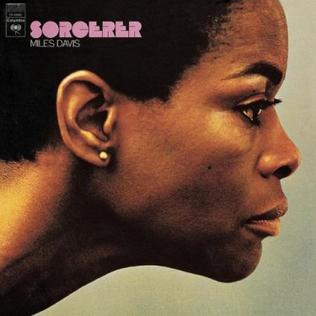
Sorcerer is an album recorded in May 1967 by the Miles Davis quintet. It is the third of six albums that this quintet recorded. It also includes one track from a 1962 session with vocalist Bob Dorough, which was the first time Wayne Shorter recorded with Davis. Davis does not play on the second track, "Pee Wee". The album's cover is a profile photo of actress Cicely Tyson, who at the time was Davis's girlfriend.

Nefertiti is a studio album by jazz musician Miles Davis, released in March 1968. Recorded at Columbia's 30th Street Studio over four dates between June 7 and July 19, 1967, the album was Davis' last fully acoustic album. Davis himself did not contribute any compositions – three were written by tenor saxophonist Wayne Shorter, two by pianist Herbie Hancock, and one by drummer Tony Williams.

Jack Johnson is a studio album and soundtrack by American jazz trumpeter, composer, and bandleader Miles Davis. It was released on February 24, 1971, by Columbia Records.
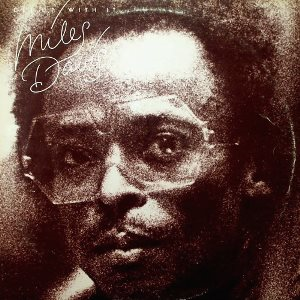
Get Up with It is an album by American jazz trumpeter, bandleader, and composer Miles Davis. Released by Columbia Records on November 22, 1974, it compiled songs Davis had recorded in sessions between 1970 and 1974, including those for the studio albums Jack Johnson (1971) and On the Corner (1972). In The Rolling Stone Album Guide (2004), J. D. Considine described the compilation's music as "worldbeat fusion".
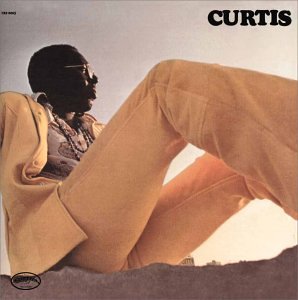
Curtis is the debut studio album by American soul musician Curtis Mayfield, released in September 1970. Produced by Mayfield, it was released on his own label Curtom Records. The musical styles of Curtis moved further away from the pop-soul sounds of Mayfield's previous group The Impressions and featured more of a funk and psychedelic-influenced sound. The album's subject matter incorporates political and social concerns of the time.

Ask the Ages is the final album recorded by jazz guitarist Sonny Sharrock during his lifetime. It was recorded with producer Bill Laswell and released in 1991; It featured Sharrock alongside saxophonist Pharoah Sanders, bassist Charnett Moffett and drummer Elvin Jones. Sharrock died on May 25, 1994.
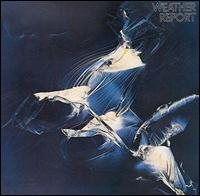
Weather Report is the debut studio album by American jazz fusion band Weather Report, released on May 12, 1971 by Columbia Records. The album was reissued by Sony and digitally remastered by Vic Anesini in November 1991 at Sony Music Studios in New York City.

Pangaea is a live album by American jazz trumpeter, composer, and bandleader Miles Davis. It was originally released as a double album in 1976 by CBS/Sony in Japan.
The Insect Trust was an American jazz-based rock band that formed in New York, United States, in 1967.

Shakill's Warrior is an album by David Murray released on the DIW/Columbia label in 1991. It features eight quartet performances by Murray with Stanley Franks, Don Pullen, and Andrew Cyrille.

After the Ball is an album by the American folk musician John Fahey, released in 1973. It was his second and last recording on the Reprise label and like its predecessor, Of Rivers and Religion, it sold poorly.
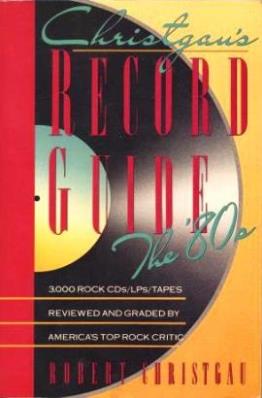
Christgau's Record Guide: The '80s is a music reference book by American music journalist and essayist Robert Christgau. A follow-up to Christgau's Record Guide: Rock Albums of the Seventies (1981), it was published in October 1990 by Pantheon Books.
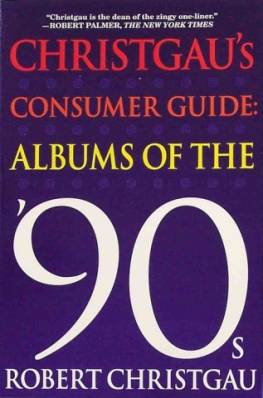
Christgau's Consumer Guide: Albums of the '90s is a music reference book by American music journalist and essayist Robert Christgau. It was published in October 2000 by St. Martin's Press's Griffin imprint and collects approximately 3,800 capsule album reviews, originally written by Christgau during the 1990s for his "Consumer Guide" column in The Village Voice. Text from his other writings for the Voice, Rolling Stone, Spin, and Playboy from this period is also featured. The book is the third in a series of influential "Consumer Guide" collections, following Christgau's Record Guide: Rock Albums of the Seventies (1981) and Christgau's Record Guide: The '80s (1990).
References
- ↑ "Tom Hull Answers a Bunch of Questions About Tom Hull, Music Criticism, and RobertChristgau.com". RockCritics.com. April 30, 2014. Retrieved July 15, 2023.
- ↑ Hull 2014; Christgau 2002.
- 1 2 3 4 5 6 Hull 2014.
- ↑ Hull 2014; Christgau 1990.
- 1 2 3 Christgau 2002.
- ↑ Christgau 2002; Hull 2014.
- ↑ Griffiths 2019.
- ↑ Hull 2014; Hull (b) n.d..
- ↑ Brackett & Hoard 2004, p. x.
- ↑ Christgau 2018.
- ↑ Jarenwattananon 2009.
- ↑ Davis 2016.
- ↑ Anon. 2019, p. 68.
- ↑ Davis 2015.